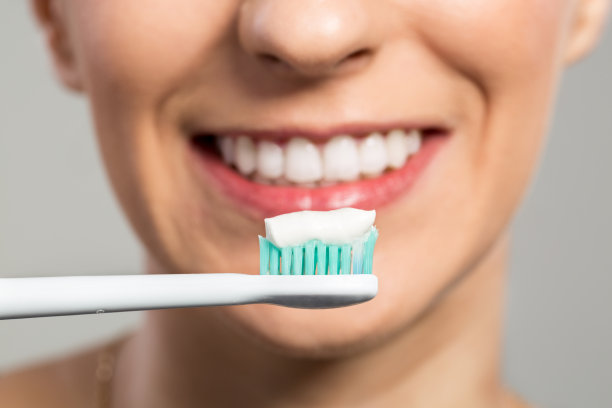Summary: Dental fillings are a common procedure for restoring teeth damaged by decay, promoting better oral health. However, there are essential precautions to consider before undergoing this treatment. This article outlines important factors, including assessing dental health, choosing the right type of filling, understanding the procedure, and post-treatment care. By following these guidelines, patients can ensure a smoother experience and maintain their oral hygiene effectively.
1. Assessing Your Dental Health Thoroughly

Before deciding on dental fillings, a thorough assessment of your dental health is crucial. This evaluation helps identify the extent of the decay and any underlying issues that might complicate the procedure. Consulting with your dentist can provide a clear picture of your oral condition and determine whether fillings are the appropriate solution.
Moreover, routine check-ups help catch potential issues early, reducing the need for extensive treatments. Your dentist will conduct X-rays and physical examinations to evaluate the necessary treatment effectively. This proactive approach can save you from more complex dental procedures in the future.
It鈥檚 also essential to discuss any pre-existing medical conditions or allergies with your dentist. Conditions such as diabetes or heart issues may influence the choice of filling material and the method of application, ensuring a tailored treatment plan suited to your health needs.
2. Choosing the Right Type of Filling Material
Dental fillings are categorized into several materials, including amalgam, composite resin, ceramic, and gold. Each type has its advantages and disadvantages depending on the location of the filling, budget, and personal preference. Understanding these options is vital before going through the procedure.
Amalgam fillings are durable and generally less expensive but might be visible, making them unsuitable for front teeth. Composite resin offers a cosmetic advantage as they can be color-matched to your natural tooth shade but may not be as long-lasting as amalgam. Evaluating these factors with your dentist can lead to a more satisfactory choice tailored to your lifestyle.
Talking to your dentist about their experiences with different materials can provide further insights. Their expertise can help guide you toward making an informed decision that balances durability and aesthetics while considering your long-term oral health goals.
3. Understanding the Dental Filling Procedure
Familiarizing yourself with the dental filling procedure can significantly reduce anxiety associated with the treatment. The process typically begins with your dentist numbing the affected area to ensure your comfort. Once you are ready, they will remove the decayed portion of your tooth before cleaning it thoroughly.
After cleaning, the dentist will insert the chosen filling material. Depending on the type of filling, this could involve layering and hardening the material under a special light for composites. Understanding each step makes it easier for patients to feel confident and informed during their appointment.
It鈥檚 essential to ask your dentist any questions about what to expect post-procedure, including the potential for sensitivity or discomfort as the filling settles. Being informed makes the overall experience less intimidating and enhances your comfort, especially for first-timers.
4. Planning for Aftercare and Recovery
Post-treatment care is integral to ensuring the longevity of your dental fillings. After the procedure, you may experience some local numbness, which should wear off within a few hours. During this period, avoid consuming hot beverages or hard foods to prevent accidental injury to your mouth.
In the days following your filling, it鈥檚 advisable to steer clear of sticky or hard foods that could dislodge or damage the filling. Regular oral hygiene practices, including brushing and flossing, are crucial for maintaining the health of your teeth and gums, especially around the filled area.
Additionally, scheduling a follow-up appointment with your dentist can help monitor the filled tooths condition and address any issues immediately. Proper aftercare ensures that fillings last as intended and helps maintain overall oral health.
Summary:
In conclusion, understanding the essential precautions before getting a dental filling can lead to better oral health outcomes. By assessing your dental health, choosing the right filling material, comprehending the procedure, and planning for your aftercare, you can make informed decisions that positively impact your dental experience.
This article is compiled by Vickong Dental and the content is for reference only.
Vickong Dental
Vickong Dental is a large medical group established in Hong Kong in 2008 by professors from well-known medical universities in Guangdong and Hong Kong, as well as medical doctors from key national '985' universities (including Master's supervisors and senior professors). The chain of branches brings together expert dentists with PhDs and Master's degrees from Hong Kong and Mainland China, committed to providing high-quality dental treatment.
"Vickong Dental Practices the University Motto of 'Healing and Serving Society,' with a Stable Operation for Sixteen Years. It Has Been honored with Hong Kong Enterprise Leaders's Choice,' and is a Global Trusted Implant Center for the Nobel Implant System. Recommended by Hong Kong Metro Broadcast and Guangdong Television, it Serves Customers from Over Thirty Countries and Regions, Gaining the Trust and Favor of Citizens from the Guangdong-Hong Kong-Macau Greater Bay Area and Surrounding Cities.

Thousands of customers' unanimous praise
The most recognized and highly recommended dental service by customers in the Guangdong-Hong Kong-Macau Greater Bay Area
We Ensure You Receive Detailed Care and Attention Here
Hong Kong standards, Shenzhen prices, Your Trusted English-speaking dentists

Vickong Dental Medical-Grade Instrument Disinfection Process
Vickong Dental Medical-Grade Instrument Disinfection Process

Vickong Dental Chain: A Warm and Comfortable Environment for Treatment






Appointment Hours

Q&A
Why choose Vickong Dental?
Vickong Dental practices the university motto 「Medicine to Benefit Society」, with each branch bringing together highly qualified dentists with doctoral and master’s degrees from Hong Kong and the Mainland, and has maintained seventeen years of steady operation。Recipient of 「2024 Hong Kong Enterprise Leaders Brand」, 「2025 Hong Kong Enterprise Leaders Brand」, a Nobel Biocare Global Trusted Implant Center, and a brand recommended by Metro Radio Hong Kong and Guangdong TV。
To date, we have served customers from more than thirty countries and regions,earning exceptionally high word-of-mouth recognition and trusted recommendations from residents across the Guangdong-Hong Kong-Macao Greater Bay Area and surrounding cities
We have eight major branches in Zhuhai、Shenzhen,and a consultation and service assurance center in Hong Kong,so you can book a free consultation at any time for any questions,which is very reassuring.
If I do not accept the quotation after the CT scan, will I be charged??
No! As long as the actual treatment has not started, you will not be charged any fees.
Will there be any additional charges during the treatment process?
No, there won’t be any additional charges. Before treatment begins, we will clearly explain the treatment plan and its corresponding fees. Only after the patient agrees and signs the consent form will we proceed with the dental service.
Can I pay in Hong Kong dollars?
Yes. Vickong Dental accepts payment in Hong Kong dollars. The amount will be converted based on the exchange rate of the day, and the applicable rate will be clearly communicated to you in advance.
Can I reschedule my appointment at any time?
Yes. Please contact us via **WeChat** or **WhatsApp** as early as possible, providing your original appointment time and details, along with your preferred new date and time slot for rescheduling.













